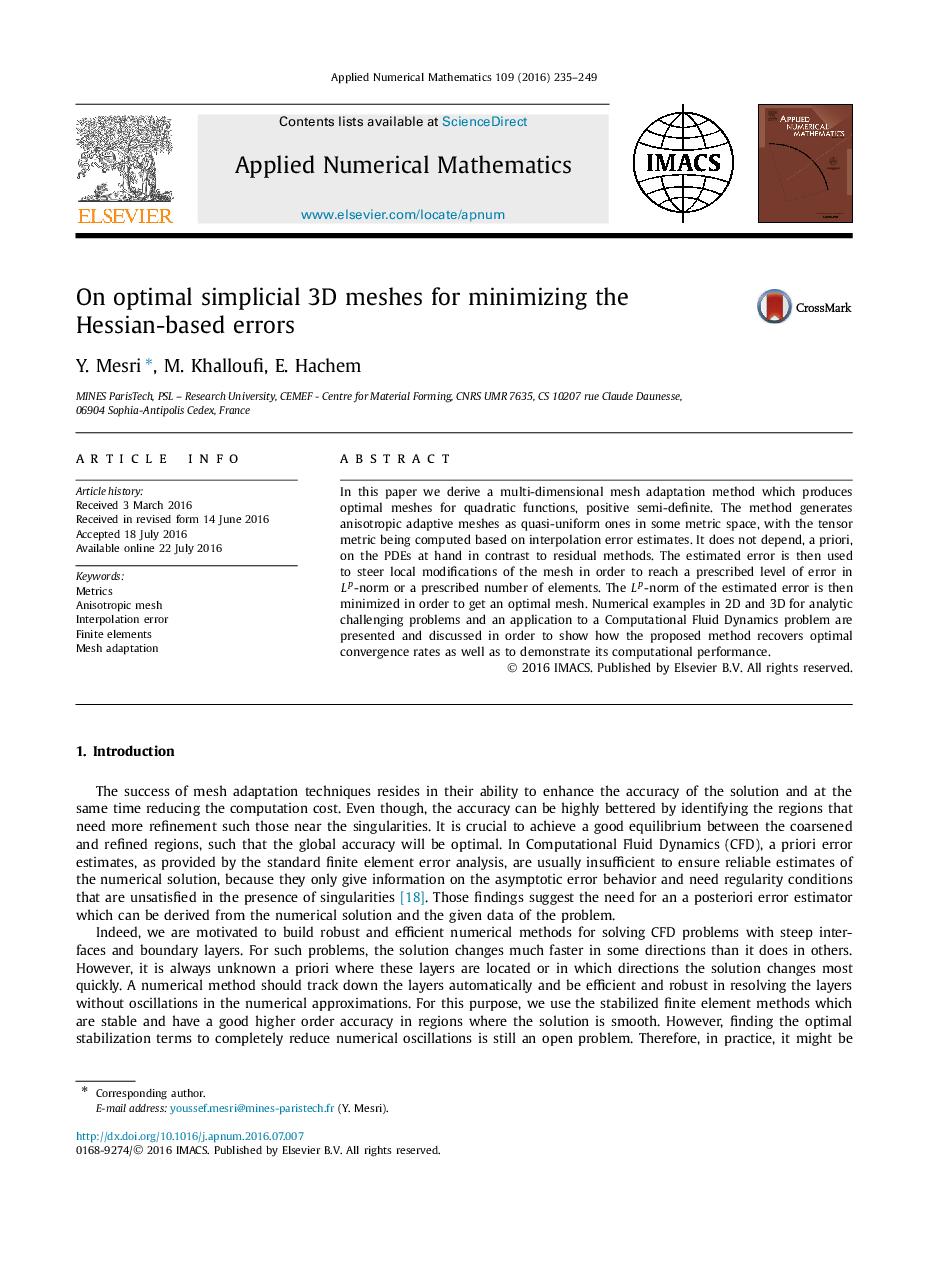| Article ID | Journal | Published Year | Pages | File Type |
|---|---|---|---|---|
| 4644846 | Applied Numerical Mathematics | 2016 | 15 Pages |
In this paper we derive a multi-dimensional mesh adaptation method which produces optimal meshes for quadratic functions, positive semi-definite. The method generates anisotropic adaptive meshes as quasi-uniform ones in some metric space, with the tensor metric being computed based on interpolation error estimates. It does not depend, a priori, on the PDEs at hand in contrast to residual methods. The estimated error is then used to steer local modifications of the mesh in order to reach a prescribed level of error in LpLp-norm or a prescribed number of elements. The LpLp-norm of the estimated error is then minimized in order to get an optimal mesh. Numerical examples in 2D and 3D for analytic challenging problems and an application to a Computational Fluid Dynamics problem are presented and discussed in order to show how the proposed method recovers optimal convergence rates as well as to demonstrate its computational performance.
